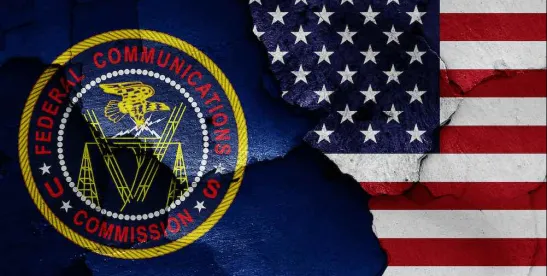| Go-To Guide: |
|
On Oct. 31, 2024, the Federal Communications Commission (Commission or FCC) released a draft notice of proposed rulemaking (NPRM) initiating a comprehensive review of the Commission’s rules on submarine cable licensing, primarily to address national security concerns. The Commission is expected to adopt the NPRM at its open meeting scheduled for Nov. 21, 2024. Comment and reply periods will begin following the NPRM’s publication in the Federal Register.
The proposed measures aim to increase the FCC’s visibility into cable system ownership, how and where those systems operate, and what types of services are provided to address what the FCC perceives as heightened national security and foreign policy risks to U.S. communications infrastructure. In many cases, the proposals would codify conditions that the Committee for the Assessment of Foreign Participation in the U.S. Telecommunications Services Sector (Team Telecom) routinely imposes upon cable licensees in mitigation agreements.
The new rules would revamp the submarine cable licensing process, which has remained largely unchanged for over 20 years. While submarine cable security has been a bipartisan issue in the past, it is unclear what level of priority and resources the FCC will dedicate to the proceeding with Commission leadership changes following the 2024 presidential election.
Specifically, the NPRM proposes to:
- Include more entities within the scope of parties required to obtain a submarine cable landing license—including those that own or operate Submarine Line Terminal Equipment (SLTE), indefeasible right of use (IRU) holders, and parties with 5% or greater ownership in a system.
- Shorten the existing 25-year license term, thereby requiring licensees to submit renewal applications more often.
- Expand the information required in applications, including the reporting of foreign ownership of 5% or more; supply more detailed information on the system; and certify adherence to cybersecurity plans and rules relating to the FCC’s Covered List.
- Adopt a three-year periodic reporting rule with the same expanded information-sharing requirements.
- Adopt a presumption that entities whose applications to land and operate undersea cables (or International Section 214 authority) were previously denied or revoked because of national security and law enforcement concerns shall not be qualified for a new submarine cable landing license.
If adopted, these rules might increase the regulatory burdens associated with obtaining and maintaining a submarine cable landing license in the United States. On the other hand, the new rules would “front-load” information Team Telecom commonly seeks in mitigation agreements and ad hoc reviews of existing licenses. In this respect, codifying certain requirements might provide prospective applicants with more regulatory certainty.



 />i
/>i
